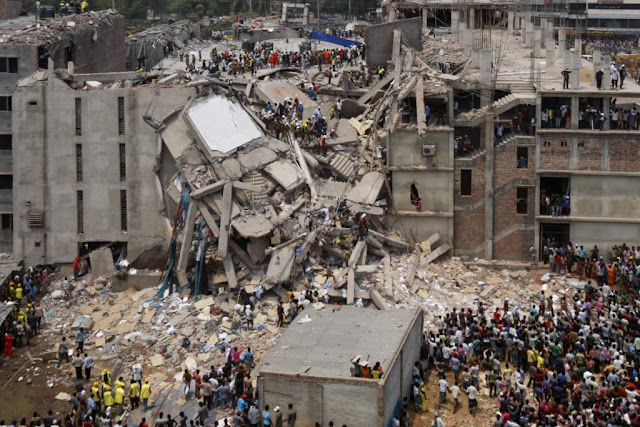Few first-worlders put on their favorite article of clothing and contemplate whether a child might have made it, or if it is a result of slave labor, or if the conditions in which it was grown, milled, dyed, or sewn would literally cost people their lives. This issue and the people it affects feel far removed from the thrill of a great deal and/or pretty piece of clothing.
Having been around crafters and makers my whole life, I always knew deep down that the crazy-low prices at my favorite stores didn't make sense. But instead of caring enough to figure it out, I ate it up like the sweet style candy that it is. Yummy.
I also realized rather quickly that these were not the brands that held up. I've loved thrift stores for as long as I can remember and when they started getting muddied up with cheap labels, it wasn't as exciting anymore. Lose the bright lights and energizing atmosphere and the candy lost it's flavor.
I shifted careers in 2011 to work in retail and be around fashion full time. While I learned a TON that I'm incredibly grateful for, it left me confused and creatively stifled. The constant churn of stuff - stuff I was supposed to like and sell - just felt like more of the same from the season before and the season before that. The fashion candy gave me a tummy ache.
December 2015, a friend (acknowledging my extensive wardrobe) told me I should do this thing called Dressember and use my fashion sense for good. Hesitantly, I took on the task of wearing a dress every day in December to document on Instagram and raise awareness and money for anti-human trafficking organizations. Through handles and hashtags, the world of ethical fashion virtually slapped me in the face. The ah-ha moment for my own store had finally arrived. THIS is how I wanted to shop.
Keep in mind this is 2 years after the tragic Rana Plaza collapse. I don't recall hearing or reading about it. Maybe it was there and I didn't want to see or hear it, or perhaps it simply wasn't acknowledged in the fashion world I'd been a part of up to this point. It was only after researching the brands discovered from the Dressember challenge that random comments about The True Cost and the term "ethical fashion" began really seeping into my consciousness.
I finally did watch The True Cost. Which only fueled the fire for what would become the niche for my boutique. I've watched it quite a few times - either with curious friends or just to remind myself why what I do is important.
There isn't much any one person can do about big brands exploiting desperate people in the developing world. Whose capitalism trades disposable fashion for the blood of the humans who make it. But I can, as one person, consume differently and offer great alternatives to fashion lovers.
Fashion Revolution is not one person. It is many of us - designers, educators, writers, business leaders, policy makers, brands, retailers, makers, buyers, fashion lovers and more - who put our mouths and our money into a different kind of fashion industry. One that values people and our earth at every point in the supply chain. It isn't a trend, it's a new way to do business that is continuing to grow and is getting increasingly difficult to ignore. This is officially our week - Fashion Revolution Week - but we strive for this every day: respect and decency for the earth that literally grows what we wear and the same for the people who turn it into our number one form of self expression. Thank you to both.
Check out the Fashion Revolution Week events in your area to learn how to get involved. I'll be in attendance at Behind the Seams tonight 4/24, and Spoils of Wear will be featured at Innovations Fashion Show on Saturday, 4/28.

